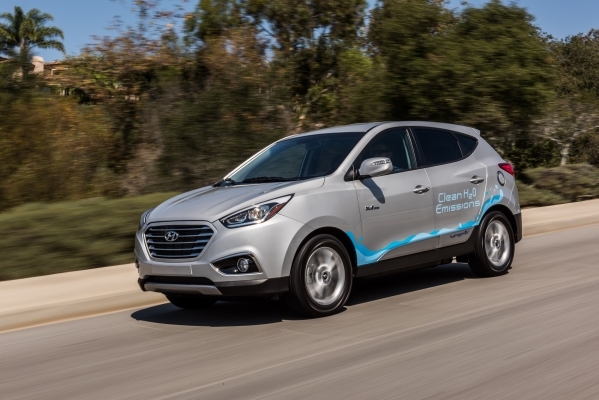What does the Paris Climate Change Conference mean for cars?

Last month, a historic accord was reached with 200 countries signing onto an accord at the Paris Climate Change Conference. Among its other aspects, it calls for emissions to be curbed with a goal of net-zero emissions by 2050.
That seems a long way off, especially when it comes to automobiles. Think of the leaps and bounds that have taken place in just the last 10 years with things like fuel-efficient powertrains like Ford’s EcoBoost engines; cars that are closer and closer to driving themselves (as being tested in Nevada); and electric vehicles become fairly common.
So, are electric vehicles going to help countries of the world meet net-zero emissions? How could they not? Electric vehicles don’t have emissions. They are by their nature net-zero emissions producers. Granted, there is some debate over how the electricity is produced to charge the electric cars.
The evolution of the electric car (in my admittedly unscientific view) is going to be hydrogen fuel cell electric vehicles.
Hyundai in Southern California leases the Tucson Fuel Cell. It is an advanced electric vehicle — one that creates its own electricity, on-board, from hydrogen. I’ve driven one and there is no discernible driving difference between it and the gas-powered Tucson. It gets 265 miles from a tank and fills up quickly — a huge advantage over electric vehicles which can take 25 minutes at high-speed chargers.
They, too, are zero emission but there is an ongoing debate about the energy used to power the hydrogen fuel cells. One solution may be renewable resources. As Hyundai points out, hydrogen can be sourced directly from water, using electrolysis to split hydrogen molecules with electricity from renewable energy sources such as wind and solar.
There’s an interesting issue around net-zero emission vehicles, especially with gas hovering around $2 a gallon. Americans, by and large, don’t care one whit about their vehicle’s impact on the atmosphere. Call us shallow because we only care about the environment when we can look good doing it. A Dutch researcher says people are drawn to electric cars because they think the vehicles would make them look good
The new Chevrolet Bolt is going to get 200 miles per charge when it goes on sale. Yet, how to say this delicately? It’s got no curb appeal. It looks like an electric vehicle and that’s not a good thing.
It helps explain why the Tesla Model S is selling well at twice the price of other EVs. People want to be seen driving that car. Heck, I’ve driven it and was excited to. I’ve driven most of the other EVs on the market and none excited me in the same way.
Regardless of their excitement levels, the effect of the Paris accord should actually be relatively little on automobiles. There are plenty of zero-emission vehicles already on the road.
Impacts are going to come from renewable resources like hydrogen fuel cell vehicles. Once the fueling infrastructure is in place and they are more distinctive looking, expect to see a lot more of these vehicles.